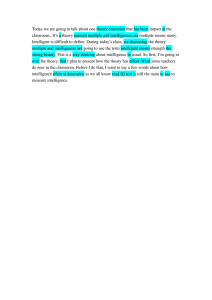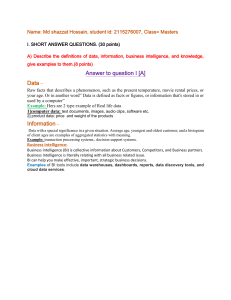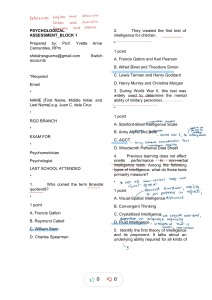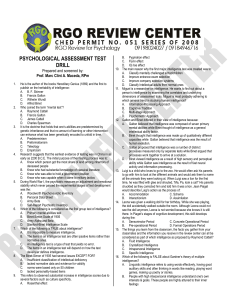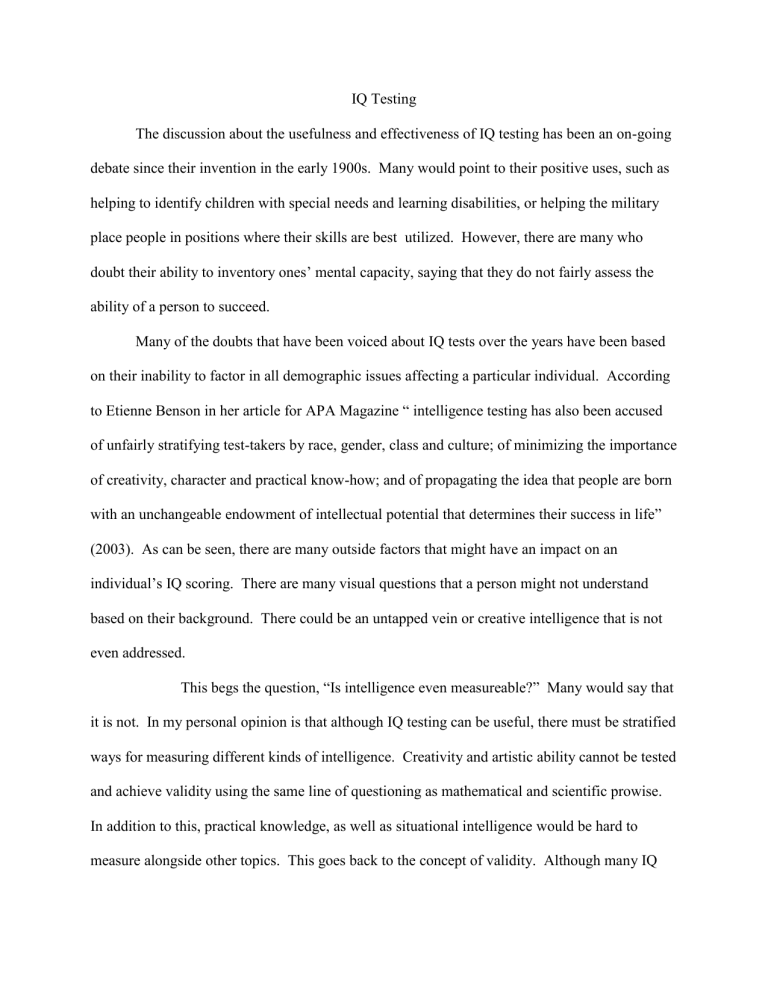
IQ Testing The discussion about the usefulness and effectiveness of IQ testing has been an on-going debate since their invention in the early 1900s. Many would point to their positive uses, such as helping to identify children with special needs and learning disabilities, or helping the military place people in positions where their skills are best utilized. However, there are many who doubt their ability to inventory ones’ mental capacity, saying that they do not fairly assess the ability of a person to succeed. Many of the doubts that have been voiced about IQ tests over the years have been based on their inability to factor in all demographic issues affecting a particular individual. According to Etienne Benson in her article for APA Magazine “ intelligence testing has also been accused of unfairly stratifying test-takers by race, gender, class and culture; of minimizing the importance of creativity, character and practical know-how; and of propagating the idea that people are born with an unchangeable endowment of intellectual potential that determines their success in life” (2003). As can be seen, there are many outside factors that might have an impact on an individual’s IQ scoring. There are many visual questions that a person might not understand based on their background. There could be an untapped vein or creative intelligence that is not even addressed. This begs the question, “Is intelligence even measureable?” Many would say that it is not. In my personal opinion is that although IQ testing can be useful, there must be stratified ways for measuring different kinds of intelligence. Creativity and artistic ability cannot be tested and achieve validity using the same line of questioning as mathematical and scientific prowise. In addition to this, practical knowledge, as well as situational intelligence would be hard to measure alongside other topics. This goes back to the concept of validity. Although many IQ tests measure what they intend to measure, this might not mean that they are all-encompassing measurements. Word Count: 324 References Benson, E. (2002, February). Intelligent Intelligence Testing, 34(2), 48. doi: https://www.apa.org/monitor/feb03/intelligent
